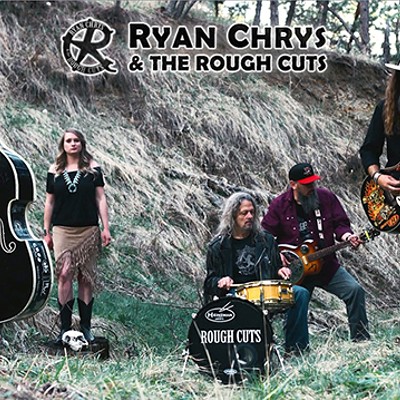"When I was nominated ... it seemed absurd to go to the Awards ceremony," Brando wrote in his autobiography, Brando, Songs My Mother Taught Me. "Celebrating an industry that had systematically misrepresented and maligned American Indians for six decades, while at the moment 200 Indians were under siege at Wounded Knee, was ludicrous. Still, if I did win an Oscar, I realized it could provide the first opportunity in history for an American Indian to speak to 60 million people--a little payback for years of defamation by Hollywood."
That "payback" was delivered by 26-year-old Sacheen Little Feather, who was born in a reservation near Tucson as Maria Louise Cruz. She became an aspiring actress/model who worked as a public service director for a Bay Area rock station and participated in the Indian rights movement, including the 1969-1971 Native American occupation of Alcatraz.
At the Academy Awards ceremony, when Liv Ullmann announced Brando's win, Sacheen took the stage clad in a traditional buckskin dress and turquoise jewelry. She motioned to Roger "007" Moore not to give her the statuette.
"I'm Apache and ... president of the National Native American Affirmative Image Committee," Sacheen told the audience. "I'm representing Marlon Brando this evening, and he has asked me to tell you, in a very long speech which I cannot share with you presently because of time ... that he very regretfully cannot accept this very generous award. And the reasons for this are the treatment of American Indians today by the film industry and in television. ..."
Sacheen then read aloud the ending of Brando's written statement: "I would have been here myself tonight, but I thought I could do more good at Wounded Knee." This referred to the then-ongoing siege and standoff between authorities and American Indian Movement activists at South Dakota's Pine Ridge Reservation, site of an 1890 slaughter of many natives.
Reaction to the snubbing of the Academy was divided. Many derided Brando for injecting politics into Tinseltown's sacrosanct, self-congratulatory event. Rock Hudson stated, "Often to be eloquent is to be quiet." Best Actress co-presenter Raquel Welch said of the nominees, "I hope they haven't got a cause." Spaghetti Western and Rawhide star Clint Eastwood--Carmel's future Republican mayor--asked if the Best Picture Oscar should be awarded "on behalf of all the cowboys shot in John Ford Westerns over the years."
As Peter Manso relates in his biography, Brando, in the Dorothy Chandler Pavilion's parking lot, racists mobbed Sacheen and then the Cadillac she was riding in, "shouting mock Indian war whoops. 'Where's your tomahawk,'" a heckler yelled.
But not everyone reacted this way. According to Manso, "Outside the stage door a group of blacks and Chicanos cheered (Sacheen), 'Right on, girl! ... (Y)ou really spoke it.'" Manso quotes Wounded Knee-occupier Dennis Banks: "Suddenly, with just this ... statement from Brando, people all over the world would be watching. It was the biggest exposure we'd had. ... (I)t was like the war was over. Total euphoria. People ran outside into the snow to fire off their rifles, yelling. We just couldn't believe it."
Brando later said he didn't have the right to gratify his ego by accepting the Oscar when he could instead provide Indians a platform to air their grievances.
Accounts differ as to why Brando never actually made it to Wounded Knee. En route, Brando wrote, there was a snafu, and "it was too late for me to get inside the reservation, which had already been surrounded by federal agents and other people with guns."
Last year, Irene Bedard--Pocahontas' voice in Disney's 1995 animated feature and co-star of 1998's Smoke Signals (which ends in Arizona)--told the Gallup Independent that she "credits the freedom to play Native American roles to Sacheen Little Feather, who refused a 1973 Oscar award on behalf of Marlon Brando ... in protest of the industry's portrayal of Native Americans in film."
And so, Brando's greatest role was played off screen.










